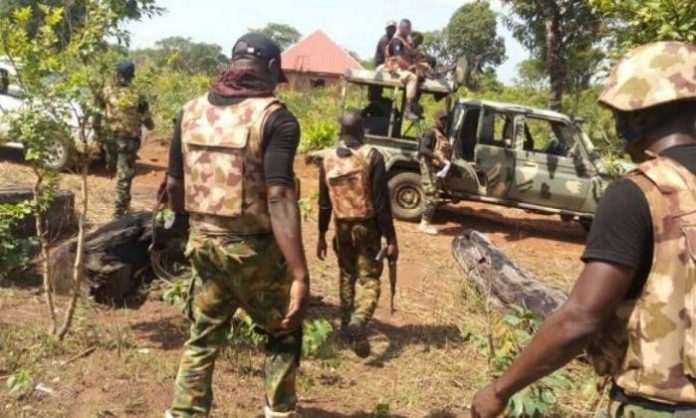In a recent escalation of cross-border tensions, armed individuals from Nigeria have killed at least five Cameroonian soldiers and injured several others in Bakinjaw, a village situated along the Cameroon-Nigeria border.
The incident occurred early Friday morning when hundreds of armed Fulani herdsmen crossed the border from Nigeria’s Taraba State into Cameroon’s Akwaya district. According to Aka Martin Tyoga, the local Member of Parliament, the assailants targeted a Cameroonian military post in what is believed to be a retaliatory attack. Tyoga stated that the aggression was in response to Cameroonian soldiers killing several herdsmen the previous day.
Agwa Linus, the traditional ruler of Bakinjaw, reported that the attackers also set fire to his residence during the assault. Expressing his distress, Linus remarked, “This is not the first time they are attacking—it’s very unfortunate.”
This violent episode is the latest in a series of cross-border conflicts between Nigeria and Cameroon, particularly involving Fulani herdsmen. The Fulani, a predominantly Muslim ethnic group, are traditionally nomadic pastoralists whose movements often lead to disputes over land and resources. These tensions have been exacerbated by climate change, population growth, and increasing competition for arable land, resulting in frequent clashes with local farming communities.
The porous nature of the Cameroon-Nigeria border facilitates such incursions, complicating efforts by both nations to maintain security and sovereignty in the region. In response to previous attacks, Cameroon’s government has deployed additional troops to border areas to deter further violence. However, the vast and difficult terrain poses significant challenges to effective border control.
The recent attack in Bakinjaw underscores the persistent volatility in the borderlands and the urgent need for collaborative security measures between Nigeria and Cameroon. Both governments have previously engaged in joint military operations to combat insurgent groups and criminal activities along the border. However, the complexity of the herder-farmer conflicts requires a multifaceted approach that addresses not only security concerns but also the underlying socio-economic factors driving the violence.

Local communities are often caught in the crossfire of these disputes, suffering loss of life, property, and displacement. Human rights organizations have called for increased protection of civilians and the implementation of conflict resolution mechanisms that involve community leaders, herders, and farmers in dialogue to foster mutual understanding and cooperation.
The international community has also expressed concern over the escalating violence in the region. There are calls for comprehensive strategies that include economic development, resource management, and legal frameworks to regulate pastoral activities and land use. Such measures are deemed essential to achieving long-term peace and stability in the affected areas.
As investigations into the Bakinjaw attack continue, it remains imperative for both Nigeria and Cameroon to strengthen their bilateral relations and enhance cross-border cooperation. Addressing the root causes of the herder-farmer conflicts, improving border security, and promoting peaceful coexistence between diverse communities are critical steps toward preventing future tragedies and ensuring regional stability.



